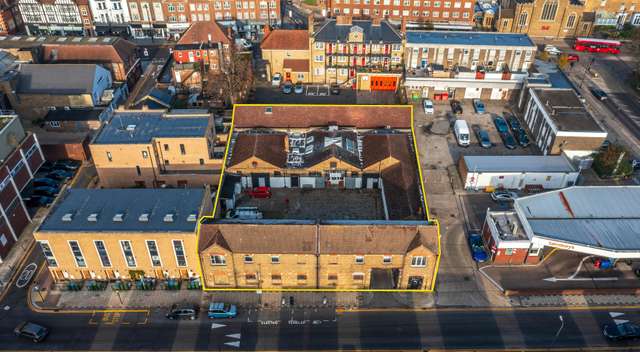



London is a bustling city with a population of 8.7 million people and it continues to grow. As the largest city in Europe, there’s no doubt that London needs more residential properties to support its ever-expanding population. It’s safe to say that London has never been so popular and what was once an unheard of destination for property development is now one of the top locations for residential developers across the world.
If you are looking for opportunities in London, here are some key tips on how to find them:
- Search by price point
- Research new developments
- Get in contact with local councils or builders
- Keep your eyes peeled on estate agents websites and newspapers
London is one of the most densely populated cities in the world. A whopping 8.7 million people live in this bustling city, which is also the largest city in Europe. This population number has been steadily increasing since the mid-1990s and experts predict that it will continue to rise for years to come.
- Battersea Power Station
- East London
- Greenwich Peninsula
- King's Cross
- Silvertown Quays
Finding the right property is a little challenging as there are so many to choose from. The first thing you should do is search by price point. What is your budget? How much can you afford? If you are looking for a more affordable home, then try the outer boroughs in London. They offer an opportunity for those looking for a starter home or something cheaper than the city centre.
The next step would be to research new developments either online or through estate agents websites and newspapers. You may find that there aren't any new developments available today, but if you keep this in mind then you will have an opportunity on your hands when one becomes available!
The first thing you need to do when looking for residential development opportunities in London is find out what your budget is. There are a wide range of properties available and it’s important that you stay within your budget. Some areas are more expensive than others. For example, the south eastern boroughs are some of the most expensive real estate in London, while some of the northern boroughs have more affordable pricing options.
Searching by price point will help you to focus on properties that suit your budget requirements.
London is a city that’s constantly developing and new projects are being announced all the time. It can be difficult to keep up with all of them, but if you have the patience and know what you’re looking for, it's easy enough to find the perfect development opportunity.
One great way to find new developments in London is by searching the internet. A lot of developments will be advertised on their builders' websites or newspapers such as The Evening Standard. If you don't want to spend too much time doing research, you can also get in contact with local councils and they should be able to point you in the right direction.
When you are looking for opportunities in London, it’s important to reach out to the local councils or builders. Property developers work closely with these authorities when developing residential properties so it’s worth getting in touch with them at the very beginning of your search. Local councils and builders will be able to tell you about the latest developments and can introduce you to other residential property developers that they work with.
If you’re looking for developments in London, it’s worth checking out estate agents websites and newspapers. Estate agents are the experts when it comes to property development and they often have a better idea of what is happening in the market than you do. They might be able to point you in the right direction or know about new developments that haven’t been announced yet. Newspapers are also a good place to look as they often have listings for new homes on their classified pages.
In conclusion, the world of property investment is a varied and complicated one, but it’s worth investing the time and effort to find the right property for you. It’s important to do your research and to keep an eye out for developments in both the private and public sectors.